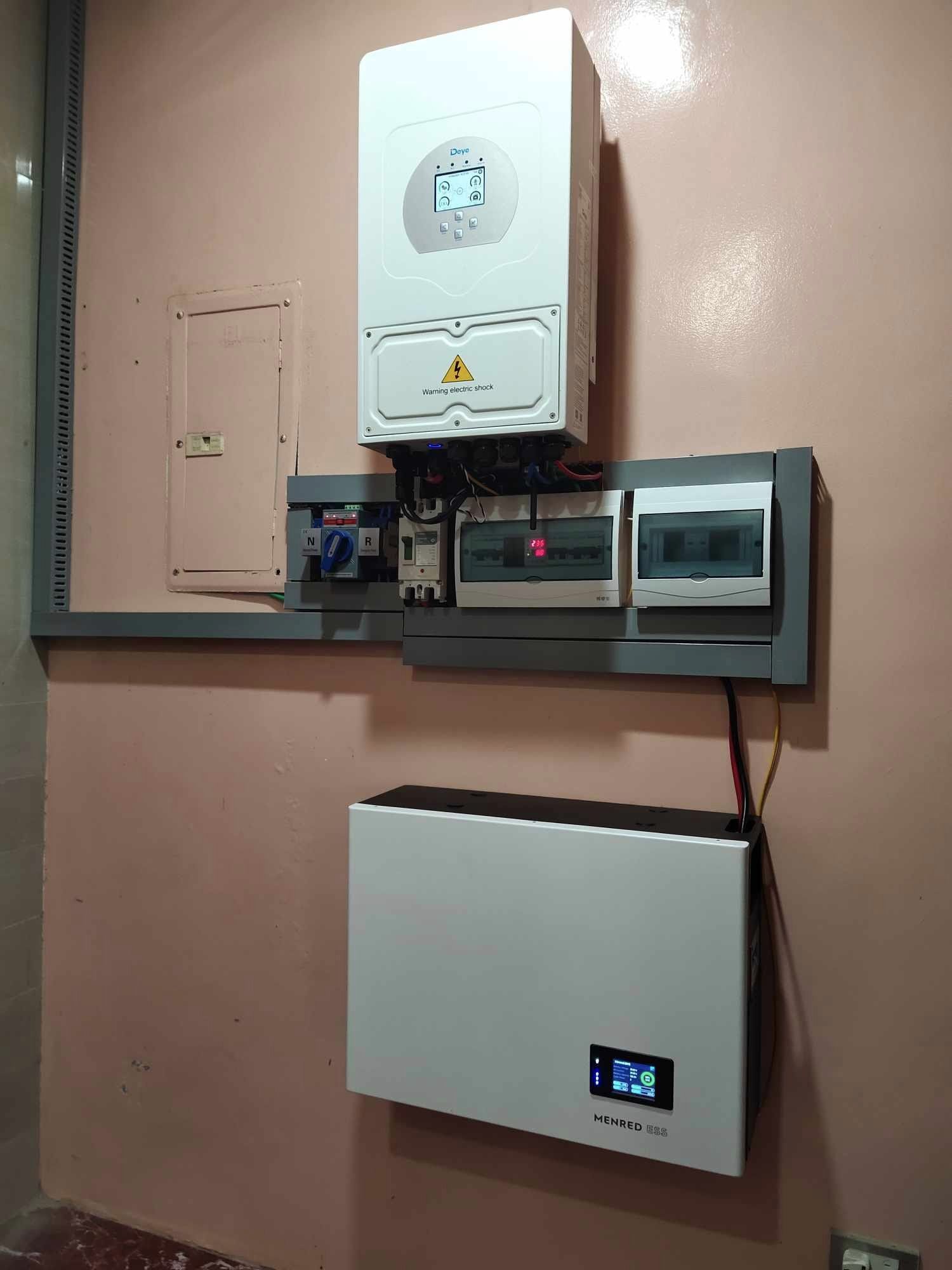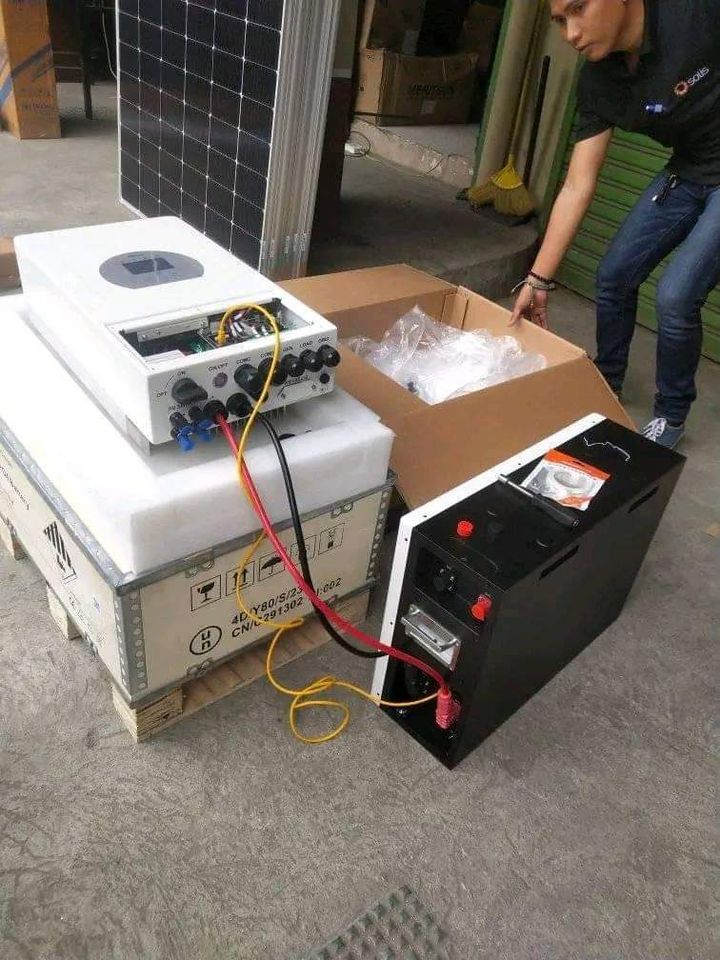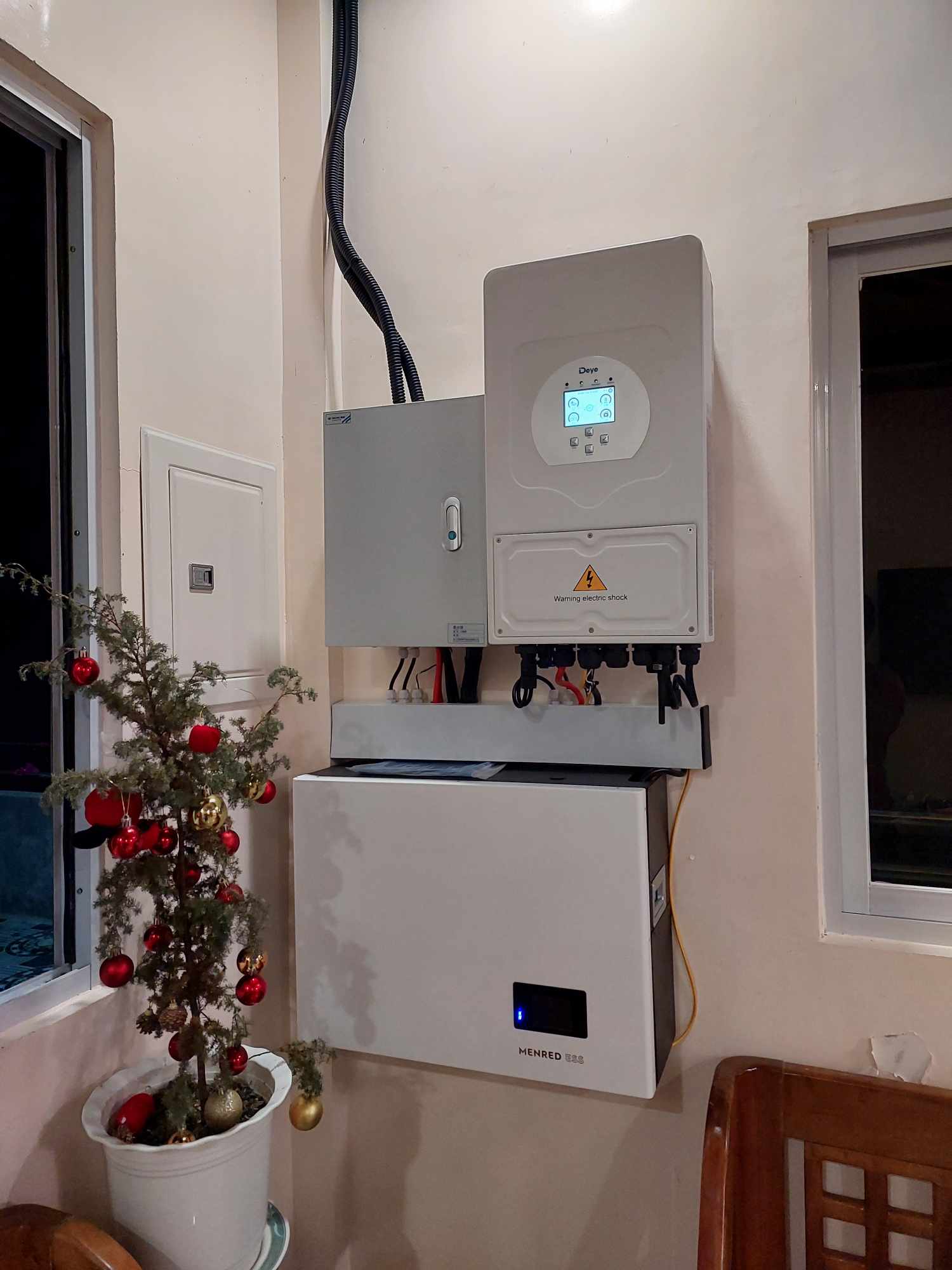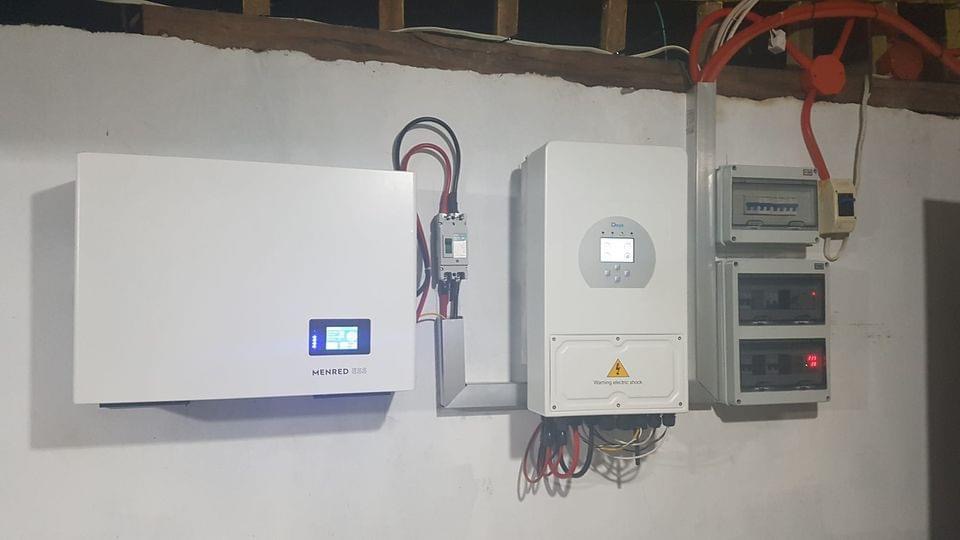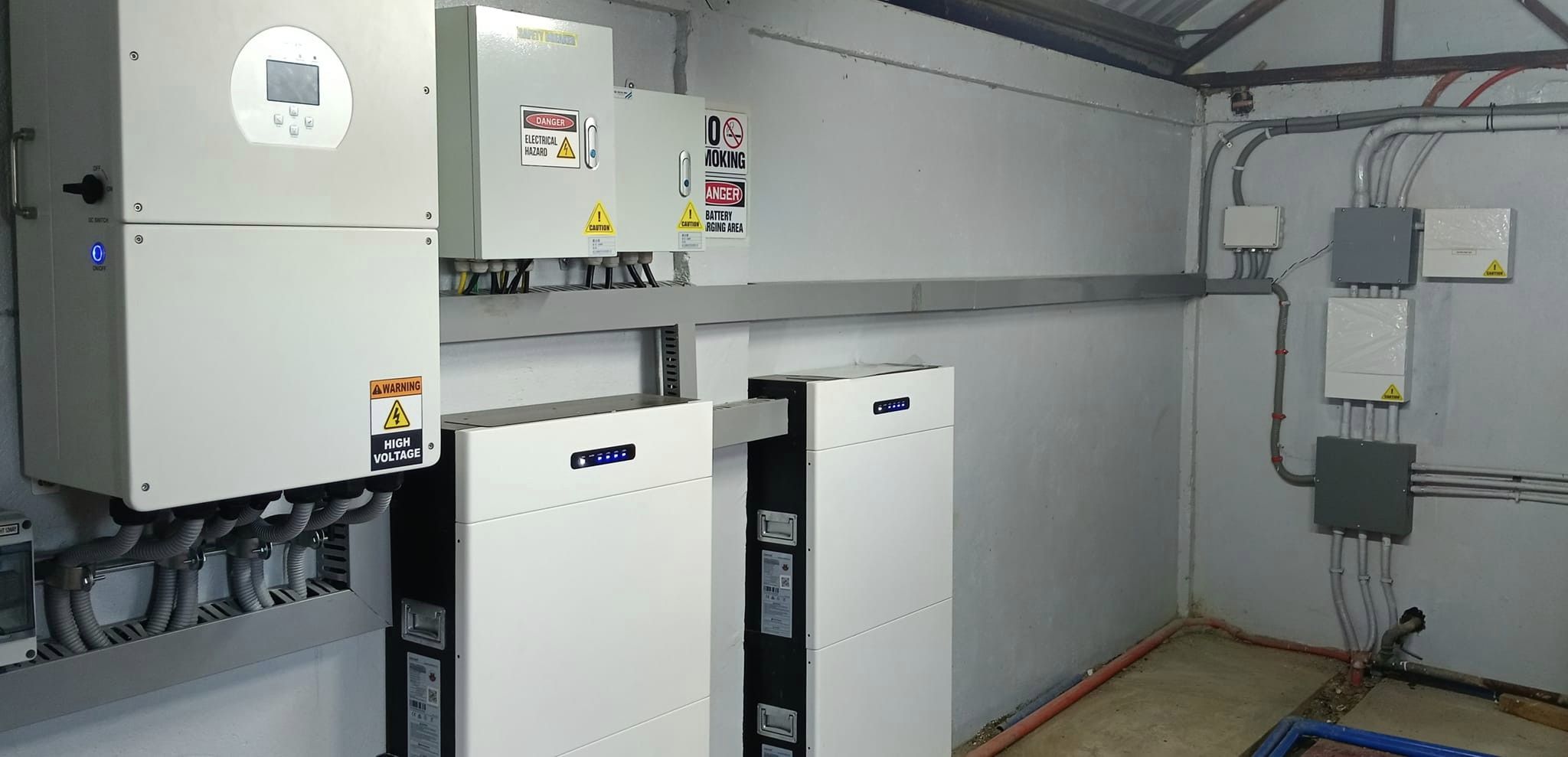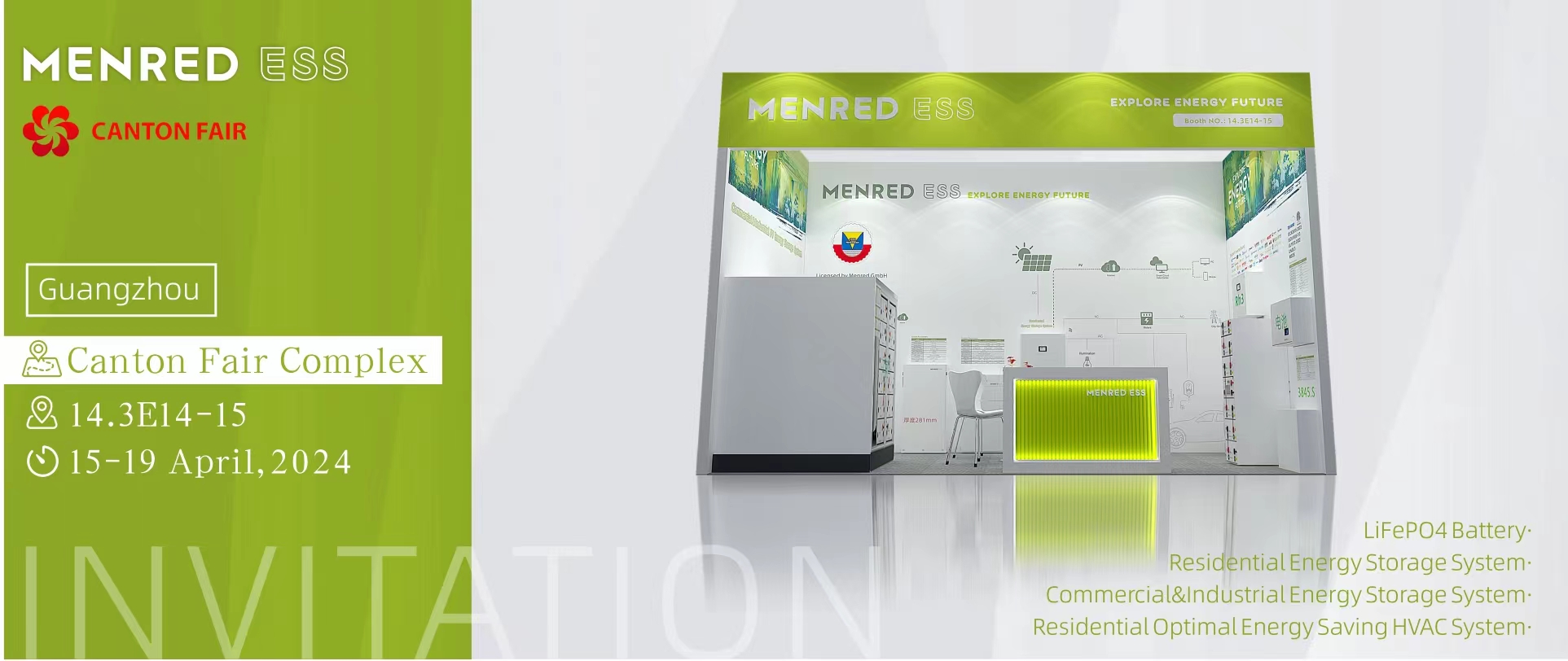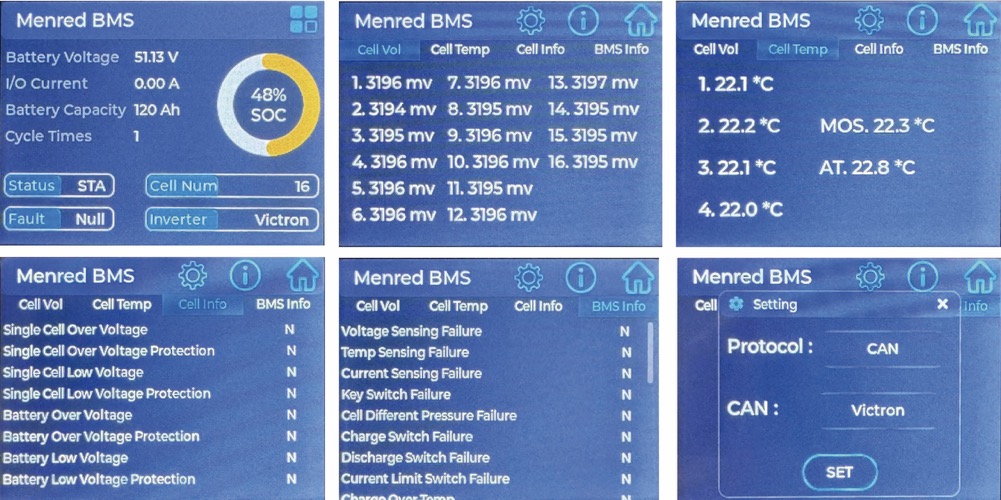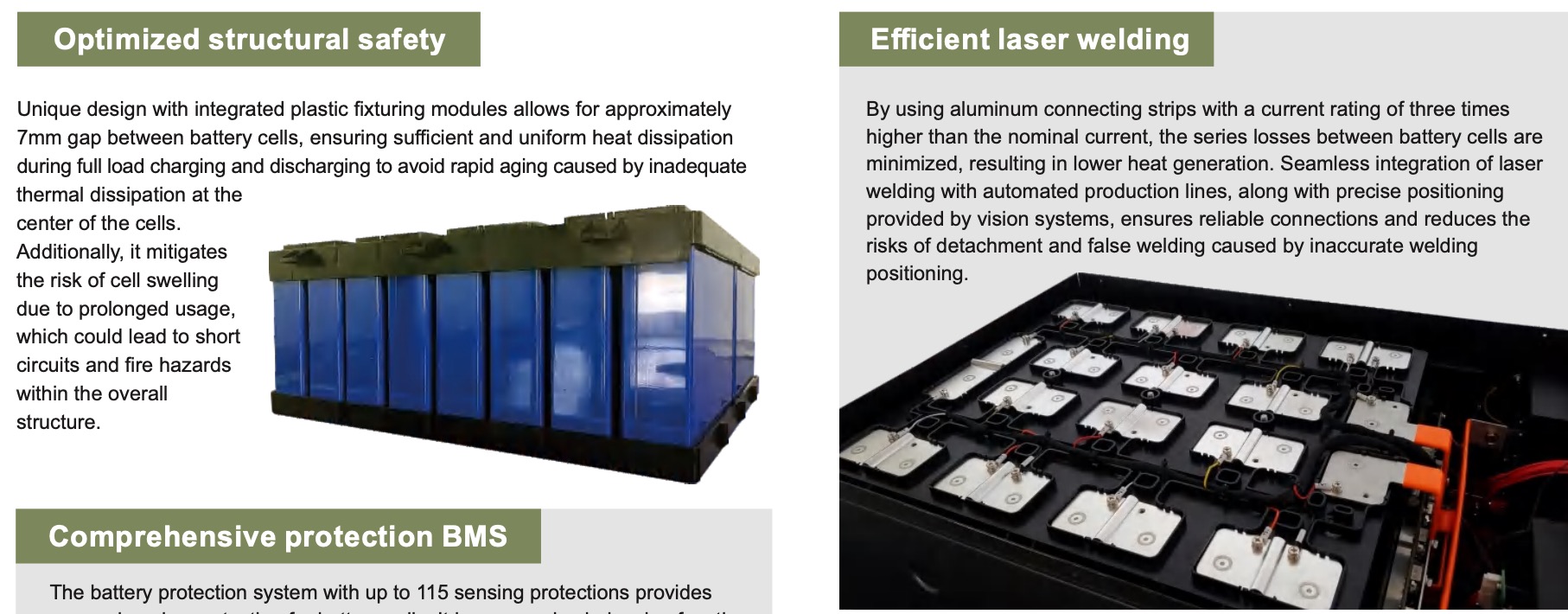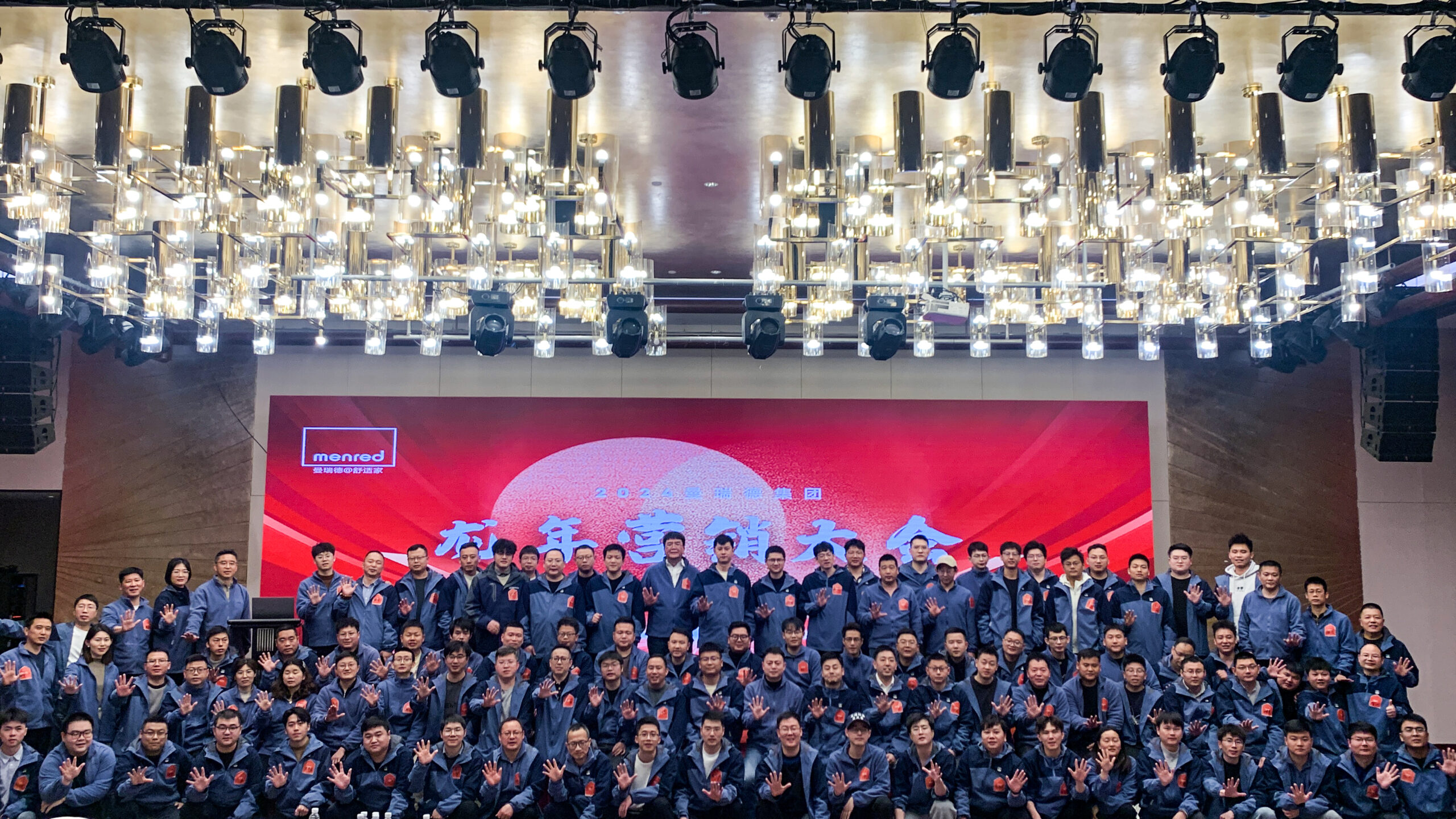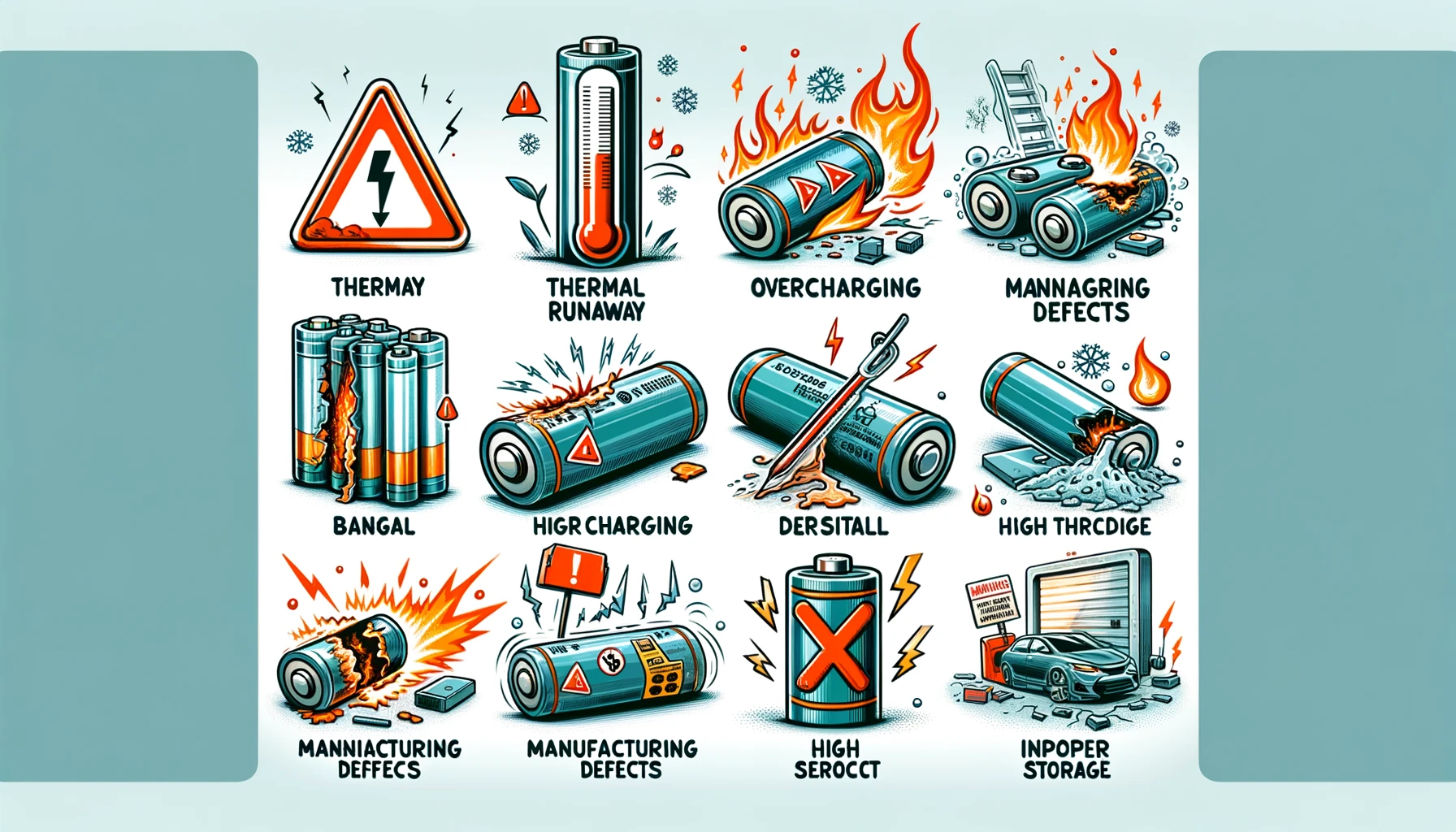The Deye 5kw Hybrid Inverter, combined with MENRED ESS’s 6kWh LiFePO4 Battery, introduces a groundbreaking solution to the market. This combo challenges the standard practice of pairing a 5KW Hybrid Inverter with a 10kWh LiFePO4 battery. Most batteries available today have a 0.5C charge-discharge rate, limiting their output to just 2.5KW. This is inadequate for a 5KW hybrid inverter, often leading users to purchase more expensive 10kWh batteries for full functionality. However, the MENRED ESS’s LFP.6144.W model changes the game. It features Higee 3.2V 120ah cells with a 1C charge-discharge rate, enabling a steady 120Amp input and output. The inclusion of a 150Amp BMS ensures stable and efficient operation. This innovative approach reduces costs for users and is a step forward in environmental sustainability.
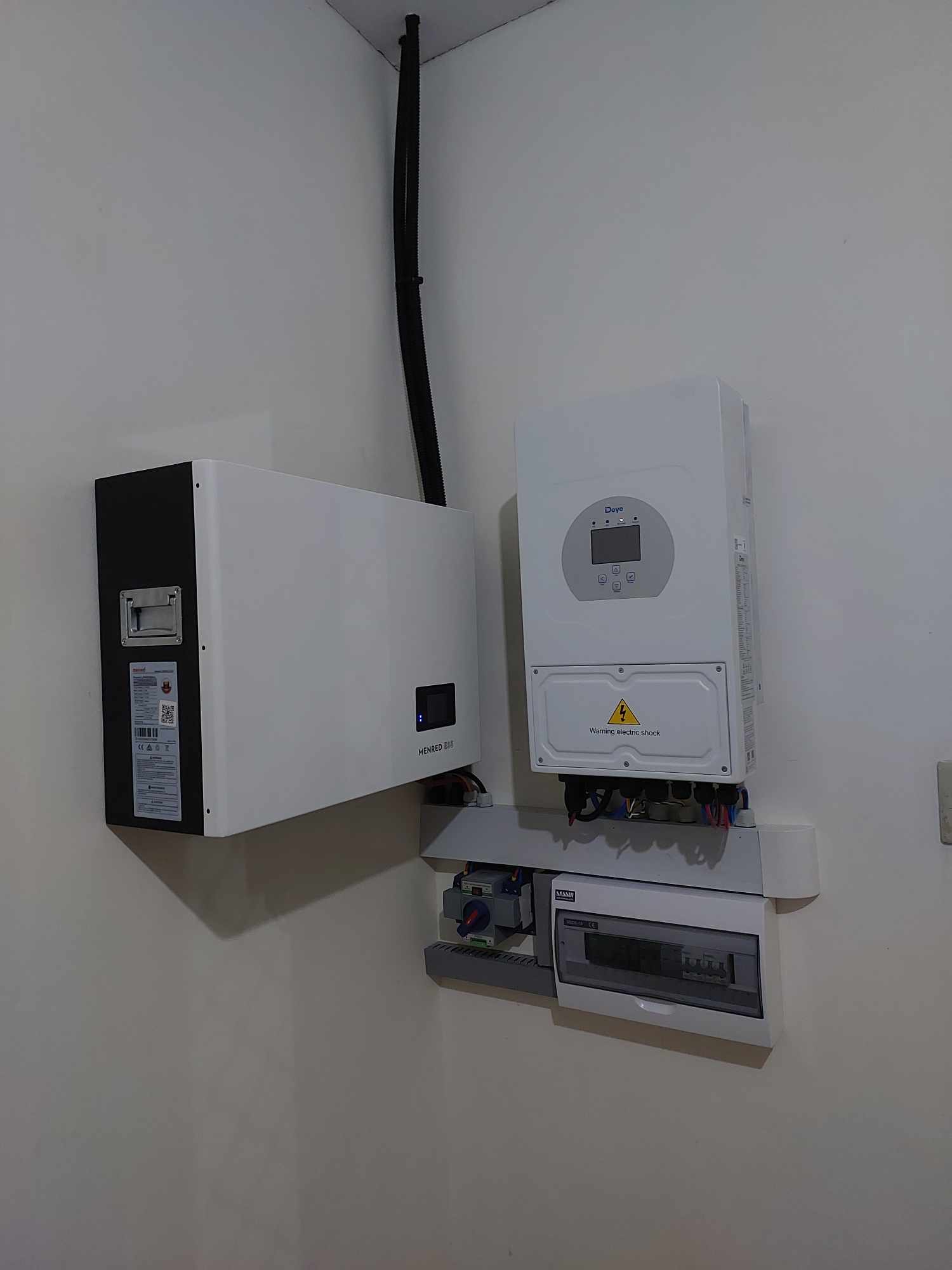
What is the efficiency of the deye 5kw hybrid inverter?
Deye 5kw hybrid inverter datasheet – download
The efficiency of the Deye 5kw Hybrid Inverter is a significant aspect for users, encompassing both MPPT efficiency and DC/AC conversion efficiency. The MPPT (Maximum Power Point Tracking) efficiency shows impressive figures with a max efficiency of 97.6%, Euro efficiency at 96.5%, and tracking efficiency reaching 99%. However, the DC to AC conversion efficiency, which is crucial for the actual usability of the battery’s capacity, is of greater interest to most users.
For a 51.2V system, the Deye 5kw Hybrid Inverter exhibits a high conversion efficiency of around 94%, ranking it among the higher echelons in the market. This notable efficiency is partially attributed to its advanced LLC technology. LLC, or LLC Resonant Converter technology, involves a single-stage driving process that significantly enhances conversion efficiency. This is in contrast to many inverters that operate on a two-stage driving process, often leading to some loss in efficiency. Improving efficiency in such technical aspects, even by a mere 1%, is a challenging endeavor. However, in real-world applications, a variance of up to 5% in efficiency is usually not impactful for the user experience.
The popularity of the Deye 5kw Hybrid Inverter in the market is a testament to its performance and reliability. It also indicates a recognition of its efficiency and the advantages brought about by its LLC technology. For those requiring precise data, detailed testing and more information can be provided upon request.
What size lithium battery do I need for a 5kW inverter?
When determining the appropriate size of a lithium battery for a 5kW inverter, it’s crucial to understand the implications of charge and discharge rates. Typically, lithium batteries in the market are rated with a 0.5C charge and discharge rate, meaning a 10kWh battery is required for a 5kW inverter (calculated as 10kWh / 2 hours = 5kW). However, the current market practices are somewhat mixed. Many battery packs combine 0.5C cells with a 1C Battery Management System (BMS), which can significantly impact the battery’s lifespan and its State of Health (SOH).
MENRED ESS, in nearly 300 cases over the past two months, has utilized 1C batteries, particularly the LFP.6144.W model with a capacity of 6.144kWh. This battery is capable of meeting the output requirements of a single 6kW inverter while ensuring longevity. We can provide test reports showing that our cells, under a 1C load, can cycle 5500 times with a Depth of Discharge (DOD) greater than 80%. Opting for reputable brands ensures the longevity of the system. Even if they use 0.5C cells, the BMS is designed to limit input and output currents, safeguarding the system’s lifespan.
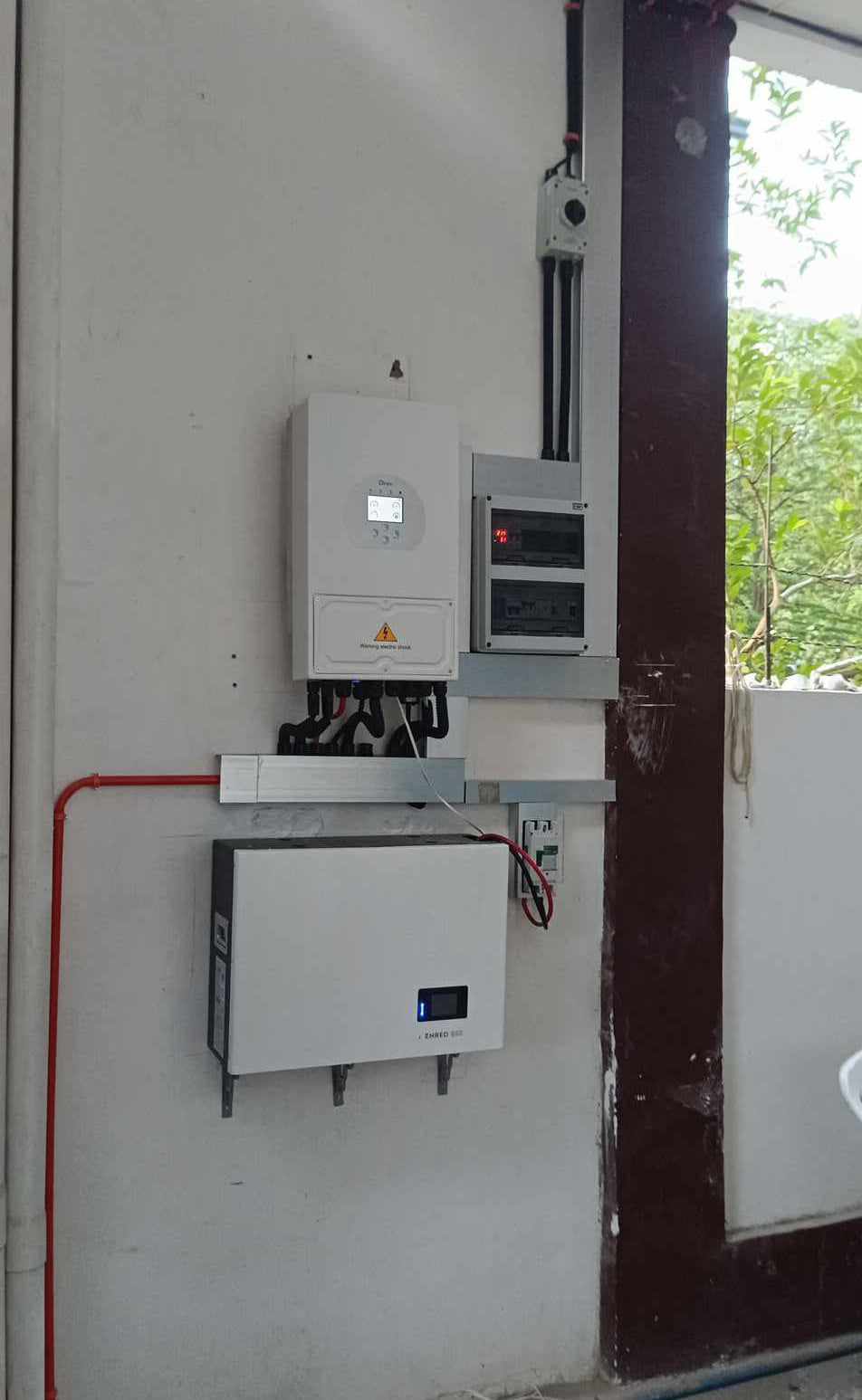
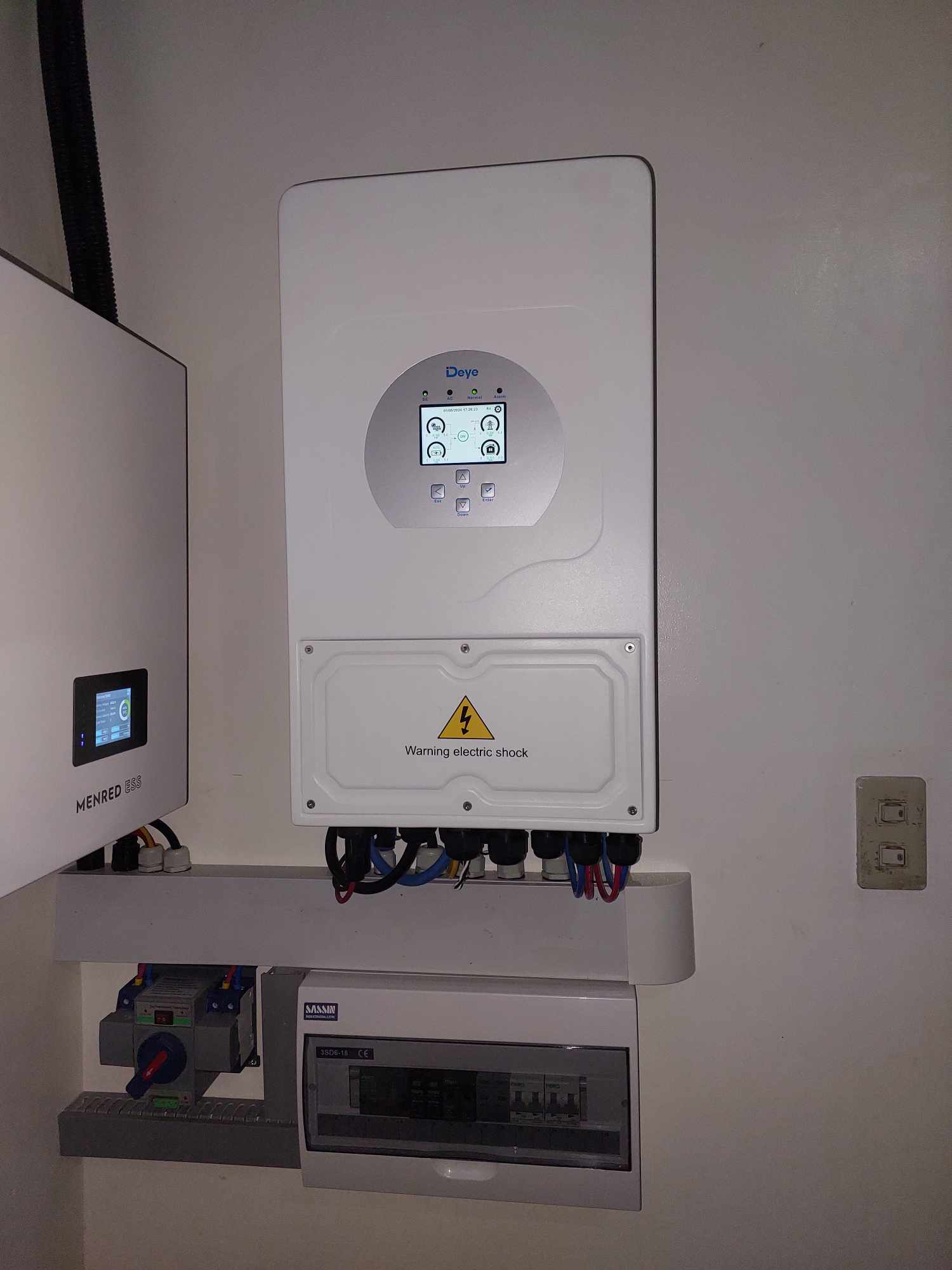
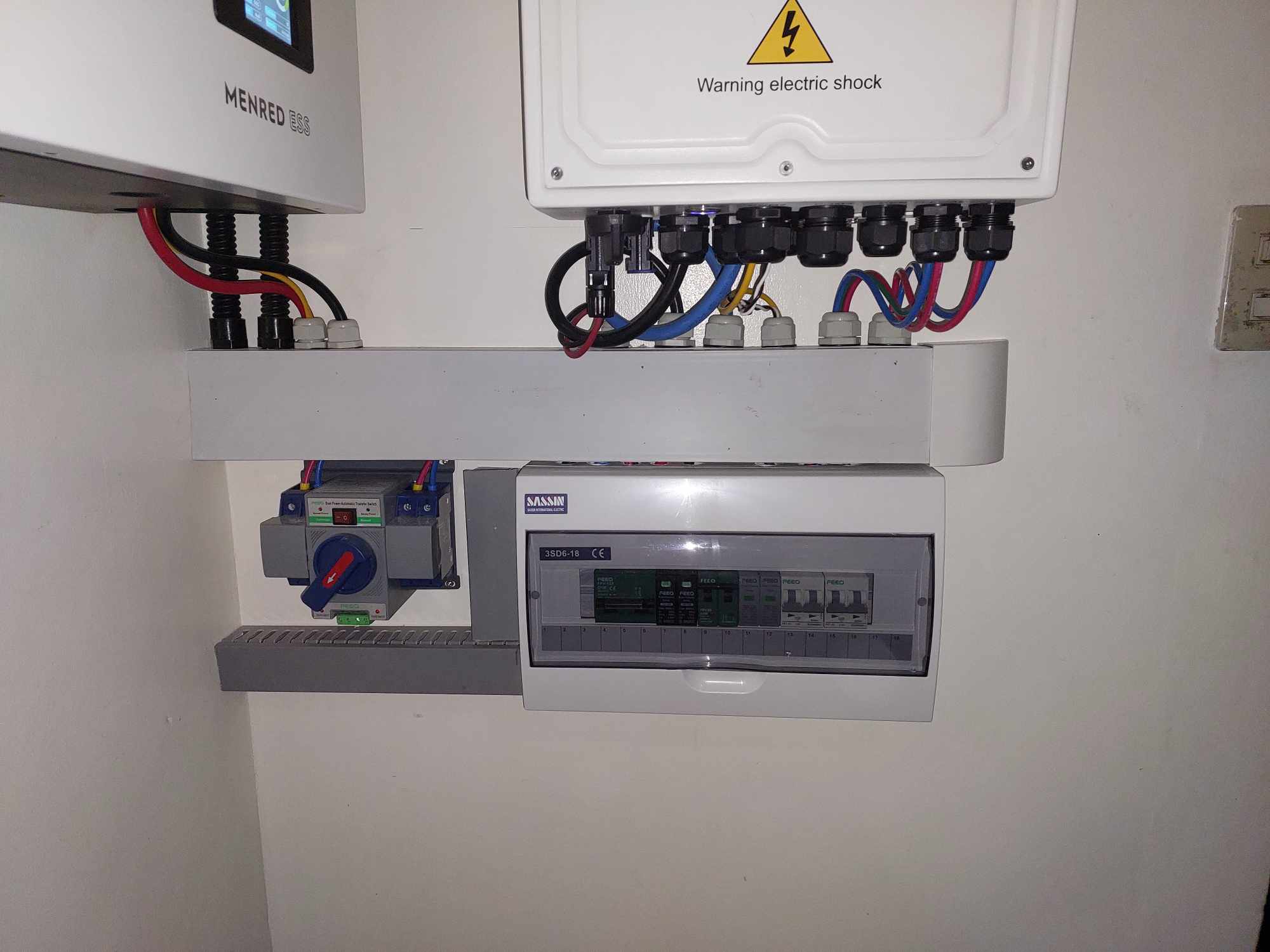
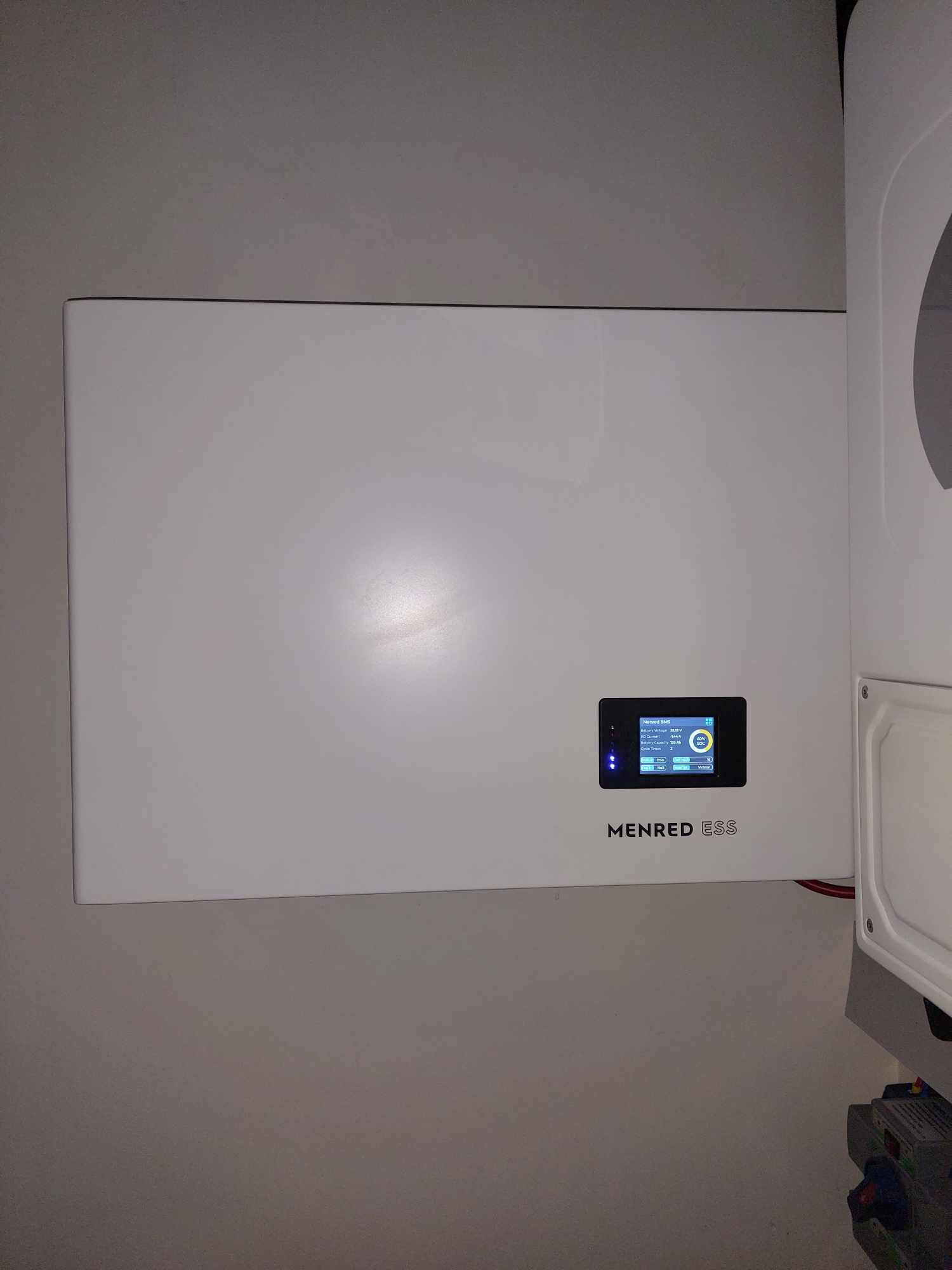
Is 5kW inverter enough to run a house?
When considering whether a 5kW inverter is sufficient to run a house, several aspects need to be evaluated. The average energy consumption of the household, the power requirements of major appliances, and the overall energy needs play a pivotal role in determining this. A 5kW inverter can typically manage the basic needs of a small to medium-sized home, powering essential items such as lights, a refrigerator, a TV, and a few other small appliances. However, for homes with higher energy demands, like those with air conditioning systems, large electric heaters, or high-powered kitchen appliances, a 5kW inverter may not be adequate. It’s essential to assess the total wattage of all the appliances and compare it with the inverter’s capacity. Furthermore, considering peak load times and the possibility of running multiple high-powered devices simultaneously is crucial. In summary, a 5kW inverter can be sufficient for a house with moderate energy needs but might fall short for homes with high energy consumption.
